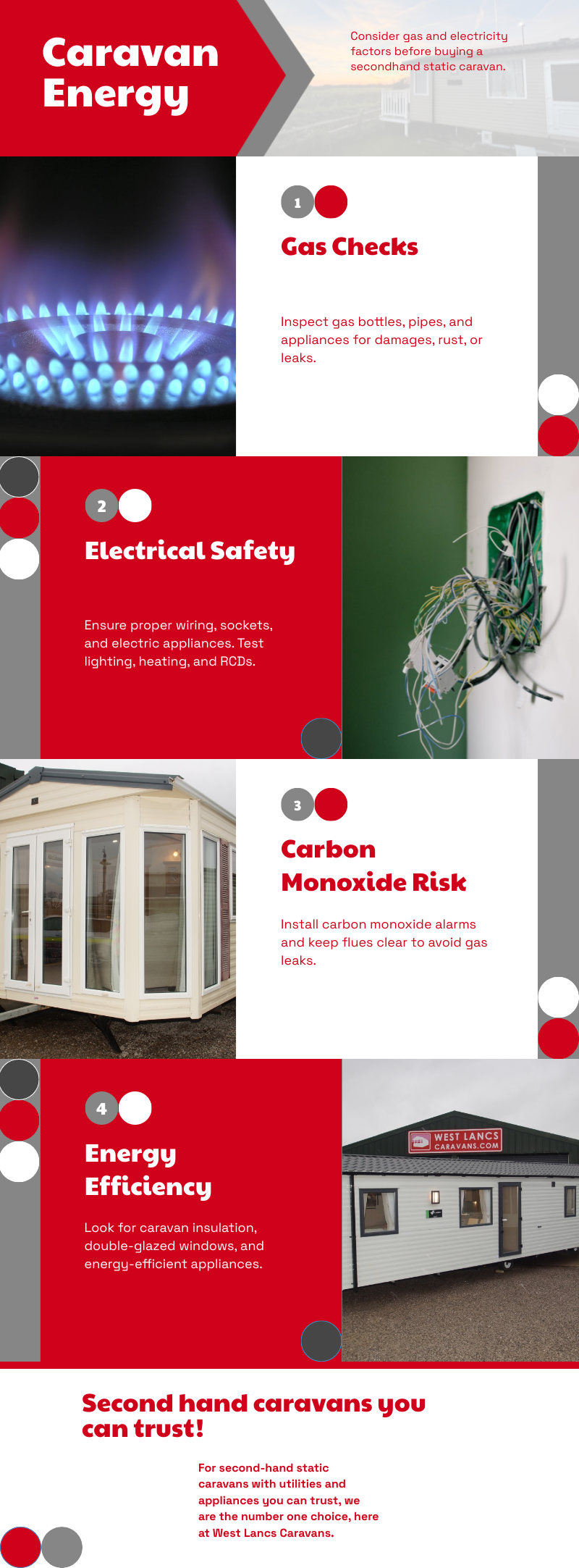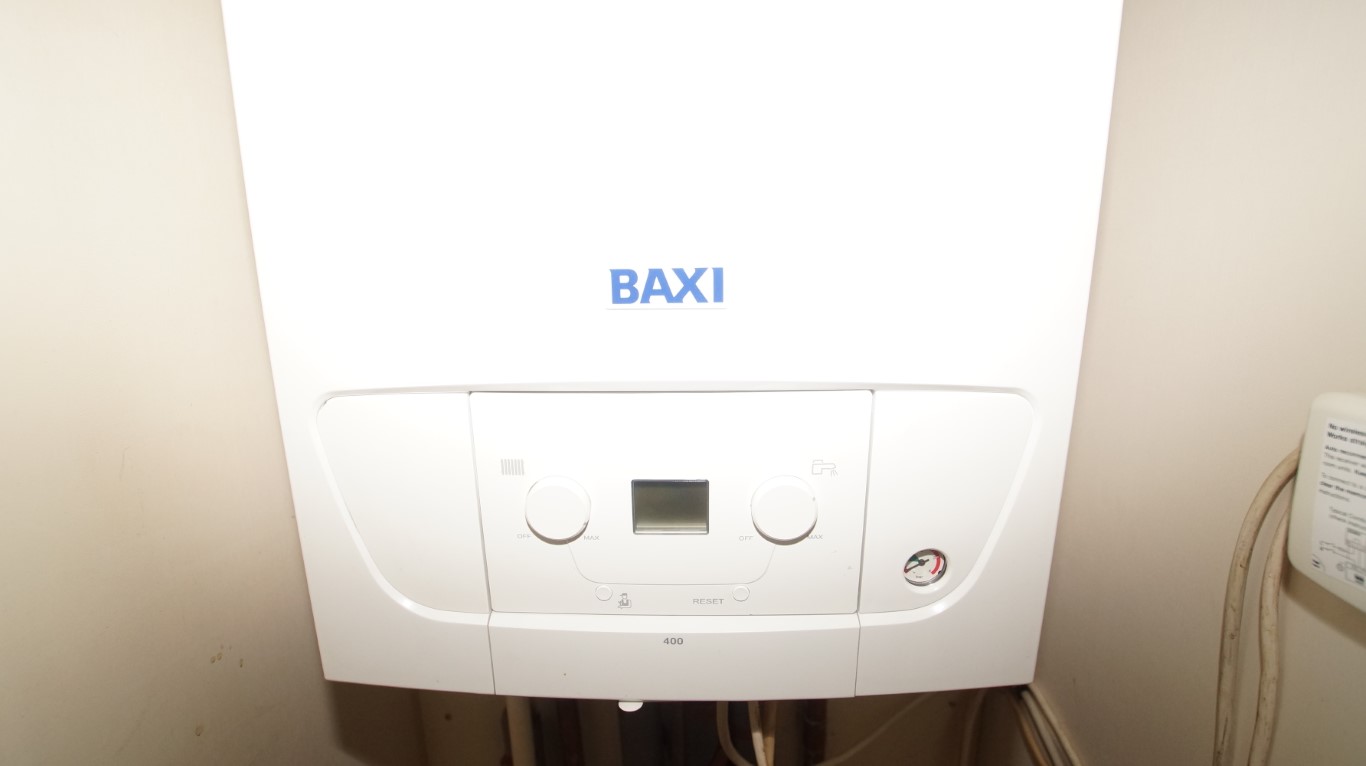For comfort, safety and general living, gas and electric are necessary for any static caravan. But what do you need to know about gas and electricity in static caravans? And what should you look out for when buying a second hand static caravan?
Gas and electricity in static caravans
Two of the most important utilities for static caravans are gas and electricity. But what are these used for and what do you need to know about their maintenance?
Gas in static caravans
For heating and cooking, and in some cases for hot water, gas is essential for static caravans. Propane or butane are the most common gas options as these offer a high level of performance even in colder temperatures, and these can be delivered even to remote locations. These are often stored in cylinders outside of the caravan.
Static caravans most often have gas powered central heating systems and cookers, with appliances that are chosen for safety, efficiency, and effective heat output for the size of the static caravan space. The right gas system can ensure that your static caravan remains warm even in colder months, making year-round living possible.
Safety considerations for gas in static caravans
It’s essential not to overlook the safety considerations for the gas supply in your static caravan, especially as this is a confined space. As such, it’s important that your gas appliances are serviced by a Gas Safe registered engineer. It can also be a good idea to install carbon monoxide detectors to provide an early warning of dangerous gas leaks. By regularly checking and maintaining gas appliances, you can prevent accidents and ensure that these appliances are operating efficiently.
Electricity in static caravans
Alongside gas, electricity is another essential utility for any static caravan, providing light and powering all the necessary appliances.
Electrical systems in static caravans
Similarly to traditional homes, static caravans are most often equipped with a standard 240-volt electrical system. This means that conventional household appliances can be used with no problems.
Power sources
For static caravans sited on an official caravan park, the electricity will be connected to the mains supply through the park’s electrical infrastructure, with each pitch having a hookup point, and electricity often included in the site fees.
For static caravans on private land, this will need to be connected to the mains supply, for which you will need to choose a professional electrical team.
Safety and maintenance
Just like gas it’s essential to consider the safety of your electricals in any static caravan. This involves:
- Ensuring that all installations and appliances comply with regulations and standards.
- Being aware of the load limit so that you don’t overload your electrical circuits, which can cause outages or damage to appliances.
- Carrying out Portable Appliance Testing (PAT) to prevent electrical faults and potential fire hazards.
Gas and electricity considerations when buying a second hand static caravan

If you’re looking to purchase a static caravan in great condition and at an affordable price, why not take a look at what we can offer here at West Lancs Caravans?


